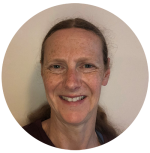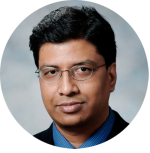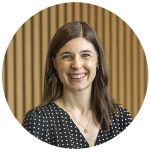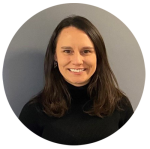Commencing in July 2023, Cancer Symptom Trials (CST) is hosting national and international presenters with expertise in fatigue as part of the Facing Fatigue Seminar Series.
This free, online seminar series aims to build researcher and clinician capacity to better manage fatigue for people living with, or after cancer.
A recent Delphi study conducted by CST researchers found that fatigue is the uniting cancer symptom that consumers and healthcare professionals agree has the most impact on daily life. This series aims to continue the conversation started by the study.
Please email event or membership queries to cst@uts.edu.au.
Why fatigue?
CST recently completed a Delphi study in adult cancer symptom research priorities in Australia and Aotearoa New Zealand. Both consumers and health care professionals (HCPs) reported that fatigue was the symptom that was the most troublesome.
Drawing on the Delphi study finding and given its relationship to other cancer symptoms as well as its universal presence, we believe that fatigue should be a high priority for further clinical research.
Is this series for me?
If you are a clinician or researcher in any health discipline, and you are interested in building your knowledge and understanding of cancer related fatigue, this free online seminar series is for you. Sign up to one or more sessions in the series – it’s up to you!
CST members, members of other cancer research groups, PaCCSC members and others interested in cancer-related fatigue are welcome to attend.
What is CST?
CST is one of fourteen Cancer Australia-funded Cancer Cooperative Trials Groups (CCTGs) conducting world-class, multi-disciplinary cancer symptom management trials.
Established in 2017, we are building a comprehensive portfolio of clinical trials that will accelerate the improvement of cancer symptom management and quality of life for all people living with cancer.
Presenters
Professor Andrew Lloyd
Professor Andrew Lloyd is an infectious diseases physician and immunovirology researcher who leads both clinical and laboratory-based research programs.
Professor Lloyd is the Head of the Viral Immunology Systems Program at the Kirby Institute for Infection and Immunity at the University of New South Wales (UNSW), Sydney. He also leads the UNSW Fatigue Clinic and Research Program.
A National Health and Medical Research Council of Australia (NHMRC) Practitioner Research Fellow, Professor Lloyd has several decades of research experience in relation to studies of the pathogenesis and management of post-infective fatigue syndromes including in epidemiology, clinical trials, microbiology, immunology, neurophysiology, and genetics.
Professor Lloyd was awarded an Australia Medal (AM) for his clinical and research achievements in infectious diseases.
Read more about the UNSW Fatigue Clinic [opens external site].
Professor Fiona Cramp
Professor Fiona Cramp is a Physiotherapist and Fellow of the Chartered Society of Physiotherapy in the UK. The focus of her research is facilitation of physical activity for people with long-term conditions.
She is Director of the Centre for Health and Clinical Research at the University of West England-Bristol (UWE Bristol), which includes a wide range of research themes from musculoskeletal, neurology, and pain to emergency care and cross-cutting themes of knowledge mobilisation and children, young people and families.
She is an experienced doctoral supervisor and contributes to undergraduate and postgraduate teaching for a range of health professional programs.
Professor Sriram Yennu
Dr Sriram Yennu is a Professor in the Department of Palliative Care and Rehabilitation Medicine at The University of Texas MD Anderson Cancer Center. Since 2005, Dr Yennu has served as the chair of the Annual Intensive Physician Board Review Course in Hospice and Palliative Medicine and Interdisciplinary Conference on Supportive Care, Hospice, and Palliative Medicine at MD Anderson Cancer Center.
Dr Yennu is an established physician, researcher and educator. He has been recognised as an American Cancer Society and American Association Hospice and Palliative Medicine Research Scholar. He is a recipient of numerous awards most notably the American Cancer Society Mentored Research Scholar award and American Association Hospice and Palliative Medicine Young Investigator award.
He was the principal investigator of the recently completed randomized, controlled trial sponsored by the American Cancer Society investigating the effects of dexamethasone for cancer-related fatigue. Currently, he has ongoing studies on the role of Multimodal therapy and Ginseng on Cancer Related Fatigue.
He is the lead co-editor along with Dr. Eduardo Bruera for “Handbook in Hospice and Palliative Medicine” published in 2011 by Oxford University Press. Dr. Yennu’s numerous, peer-reviewed and invited publications are featured in high impact peer reviewed journals in palliative care and oncology.
He has published and spoken widely on the subjects of cancer related fatigue, sleep disturbances, pain, delirium and geriatric palliative care. His other interests include hospital based palliative care outcome research and education.
Dr Elizabeth Pearson
Dr Elizabeth Pearson is an occupational therapist and health services researcher working at the Peter MacCallum Cancer Centre in Melbourne, Australia. In both roles she aims to help people with cancer to live their lives as well as possible, for as long as possible.
Dr Pearson’s recent research has explored the feasibility of implementing evidence-based guidelines for the common problem of cancer-related fatigue.
Dr Carolina Sandler
Dr Carolina Sandler is an accredited exercise physiologist and clinical researcher. Her program of research focuses on understanding the pathophysiology, management (incl. physical activity & multidisciplinary interventions), clinician and patient education of fatigue as a sequalae of cancer (post-cancer fatigue) and acute infection (post-infective fatigue).
Caroline holds a NSW Cancer Institute Early Career fellowship and is a lecturer at Western Sydney University. She is an adjunct researcher at the University of New South Wales (UNSW) Fatigue Clinic Menzies Health Institute, Griffith University, and the University of Queensland.
Read more about the UNSW Fatigue Clinic [opens external site].
Facilitators
Dr Gemma Ingham
Dr Gemma Ingham is a palliative care specialist and lead cancer clinical trialist at Prince of Wales Hospital in Sydney. She is the chair of the PaCCSC/CST Fatigue symptom node subcommittee and has a number of peer-reviewed publications.
Dr Ingham is currently the primary investigator in a phase 2, randomised, double-blind, placebo-controlled study to investigate the efficacy, safety, and tolerability of ponsegromab in patients with cancer and cachexia, and a Q-stream based clinician education module for fatigue.
She works as part of a busy consult and clinic service, caring for patients with both malignant and non-malignant conditions. Dr Ingham has a passion for research and hopes that by contributing to the growing body of evidence, she can improve the level of care and the quality of life of her vulnerable patients. Her research interests are in fatigue and cachexia management.
Dr Megan Ritchie
Dr Megan Ritchie is a Staff Specialist in Palliative Medicine at Concord Repatriation Hospital. She is a Fellow of the Royal Australasian College of Physicians and Australasian Chapter of Palliative Medicine.
Megan is a clinical researcher and site investigator for PaCCSC and CST clinical trials collaboratives and is a Principal Investigator for the pharmaceutical cannabis trial, Namisol for anorexia in advanced cancer. She is co-coordinating Principal investigator for Testosterone Treatment for Fatigue in Advanced Cancer.
Her particular areas of interest are cancer-related fatigue and anorexia, as well as community-based Palliative Care Medicine. She has a keen interest in education, particularly teaching medical students.
Celia Marston
Celia Marston [opens external site] is the Clinical Lead for Occupational Therapy at Peter MacCallum Cancer Centre, Research Lead at Royal Melbourne Hospital. She is an adjunct lecturer at Monash University and a PhD candidate at the University of Technology in Sydney.
Celia is involved with research in the areas of palliative care and cancer rehabilitation, specifically the experiences of patients and carers, the benefits of rehabilitation and return-to-work programs.
Emerita Professor Jane Phillps
Emerita Professor Jane Phillips is at the forefront of her field and brings her considerable clinical nursing, national policy and academic expertise to deliver outcomes that are changing practice and enhancing palliative care globally.
Jane's interdisciplinary program of research targets the delivery of care that enables people to spend more days in their place of choice, to move seamlessly between care settings and to receive best evidence based palliative care.















